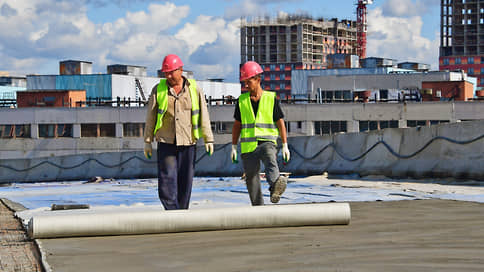Capital investments are called up for civil service – Newspaper Kommersant No. 164 (7365) dated 09/07/2022
[ad_1]

The unexpectedly positive statistics of capital investments in the second quarter of 2022, which even before the publication of the data by Rosstat was announced by First Deputy Prime Minister Andrei Belousov (see Kommersant on August 30), turned out to be the expected reasons – investments from the budget and state companies. Their contribution, according to Raiffeisenbank analysts, provided almost the entire increase in the indicator in real annual terms. Private investment declined during this period (see chart). “Apparently, infrastructure construction is playing a significant role now,” experts say. The total volume of construction works in the second quarter added 3.4% yoy, in July its dynamics provided the second largest contribution to the local improvement of GDP (see Kommersant of September 6).
At the same time, Raiffeisenbank notes that the ruble exchange rate, which has long been a “good proxy” for the fixed capital investment deflator, for the first time showed significantly multidirectional dynamics with the price index for investment goods. Against the background of the strengthening of the ruble in the second quarter of 2022, the deflator grew by 16.5% year-on-year. This, according to bank analysts, is not surprising. “Both consumer inflation and capital goods inflation are significantly affected by a significant increase in logistics costs and the direct or indirect effects of sanctions,” they explain. The government has already acknowledged that recovery is observed in consumer and intermediate imports, in investment – it is not. Thus, the cost of budgetary capital purchases is growing noticeably.
According to Rosstat, the annual growth rate of capital investment in the second quarter slowed to 4% in real terms from 13% in the first quarter (see Kommersant on September 1). According to the CMASF, on average for the second quarter, taking into account seasonality, capital investments decreased by 1.4% compared to the first quarter against an increase of 3.1% in January-March. “The drawdown in investment demand this year is likely to be weaker than we previously thought. Among the key factors are budget support, as well as a smaller decline in production (and investment) in the oil and gas sector, ”conclude Raiffeisenbank. The Ministry of Economy, on the other hand, expects that 2023 will be decisive for the dynamics of capital investments, and promises unprecedented investments in the infrastructure of the regions (see the interview on this page).
[ad_2]
Source link






